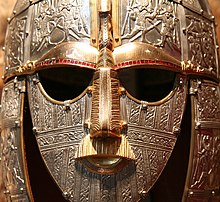England
(in English, England) is one of the four constituent nations of the UK. Its territory is geographically formed by the southern and central Great Britain, an island it shares with Scotland and Wales, and about 100 smaller islands such as the Isles of Scilly and the Isle of Wight. Bordered on the north by Scotland, west Wales, with its two-land border, northwest to the Irish Sea, the Celtic Sea to the south, east to the North Sea and on the south by the English Channel.
The territory of modern England has been inhabited by various cultures for about thirty-five thousand years, but it takes its name from the Angles, one of the Germanic peoples who settled in place for the V and VI. He became a unified state in 927 and since the Age of Discovery, which began in the fifteenth century, has had a large cultural and legal impact worldwide. The English language, the Anglican Church and the Law England taken as a basis for the legal systems of many other countries around the world-developed in England, and the parliamentary system of government has been widely adopted by other nations.
The Kingdom of England-which since 1284 also included Wales-was an independent state until 1707, when they signed the Act of Union with Scotland, to create the Kingdom of Great Britain. In 1801 Ireland joined the Kingdom of Great Britain creating the United Kingdom of Great Britain and Ireland until 1922. With independence and partition of Ireland from entoces is the United Kingdom of Great Britain and Northern Ireland.
 The XXX Olympic Games
The XXX Olympic Games was a sporting event that was held from 27 July to 12 August 2012 in the city of London, United Unido.3 The first event, the group stage in the women's football tournament, started two days before the inauguration, on 25 July 2012.4 Around 10,500 athletes from 204 countries participating in the Olympics Londres.5
After the candidacy headed by former Olympic champion Sebastian Coe and the then mayor Ken Livingstone, London was chosen as the host city on 6 July 2005 during the 117th. IOC Session in Singapore, defeating Moscow, New York, Madrid París.6 and London is the first city to host the Olympic Games three times, having previously played host in 1908 and 8 September 1948.7
While budgetary considerations for the games have generated some criticism, November 10 they have also been welcomed as drivers of a new development in many areas of London in which sporting events are held, including sustainability issues 12 the main focus of the game will be the new London Olympic Park of 200 hectares built on a former industrial site in Stratford, east of Londres.13 the Games also used by many sites and facilities that were already built before the candidacy .
Mariana Pajón
Mariana Pajón Londoño, ODB (Medellin, Antioquia, October 10, 1991) is a Colombian cyclist, BMX rider.
He earned a gold medal in BMX cycling in the 2012 London Olympics, earning his first award and the second Olympic gold in history colombiana.1 Having been Olympic medalist at the Games, the Colombian government awarded him the Cross of Boyacá.2
Besides Olympic champion, Mariana has won several world championships, national (Colombian and U.S.), and Pan American, among others.



